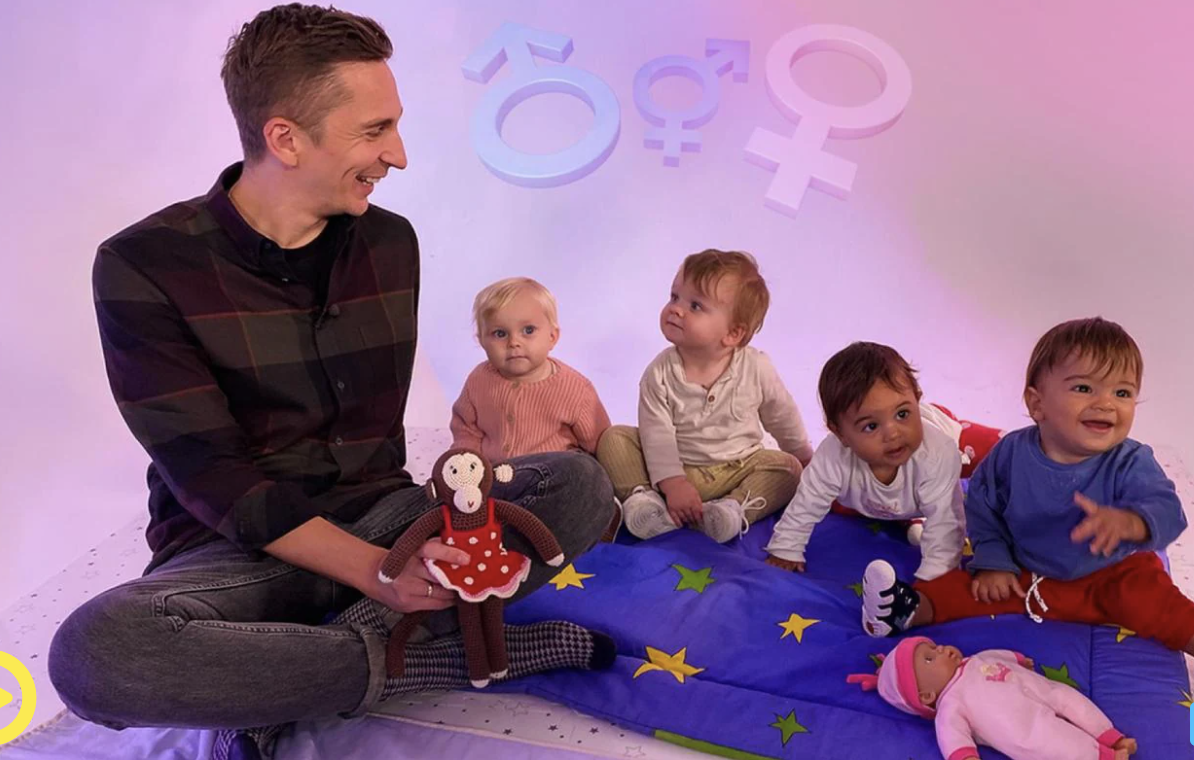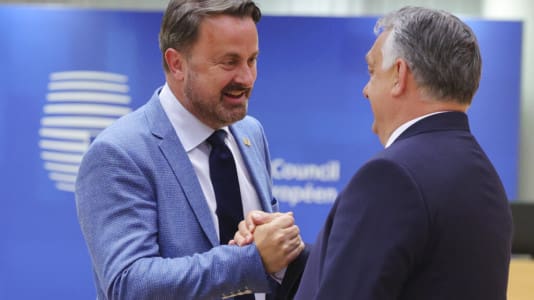Germany’s state-funded media and television networks are producing a full range of pro-transgender content, and one of their main target audiences happen to be young children. This controversial children’s programming routinely depicts transgender people as courageous figures who should not only be admired but also emulated, with little to no discussion devoted to potential downsides or side effects involved with the life-altering decisions associated with hormone therapy and surgery.
One of the biggest promoters of pro-transgender content is children’s programming giant KiKA, which receives a massive amount of taxpayer money from public television networks ARD and ZDF, both networks accused of an extreme left-wing bias. KiKA has long presented gender change, hormone blockers, and even transition surgery as positive and healthy goals for young people despite a growing number of doctors and even medical authorities, including the Swedish National Board of Health and Welfare, now advising against children and teens taking hormone blockers due to the adverse medical and psychological costs.
All the way back in 2016, KiKA produced a segment entitled “When you think that you are a girl, you are a girl,” which featured a 10-year-old who changed their gender. The host of the show did not offer nuanced or unbiased advice to children facing similar questions about their gender or sexuality, but instead gave a full-throated endorsement:
“Imagine you are a girl, but something inside you tells you that you would much rather be a boy — or vice versa: You have the body of a boy but feel like a girl. This is something that can make you suffer a lot. Children who are like this are often very unhappy, until they actually change their sex sometime later. It was the same with ‘Sam’ from Sweden, who until recently was still the girl Iris to everyone.”
Another program on KiKA showcases a 12-year-old transgender girl, her transition, and how she deals with the issue in her high school, all in a positive and sympathetic light, while yet another KiKA program known as “LOGO” produced an animated pro-trans, pro-diversity animated short.
Earlier this year, the beloved children’s program known as “The Mouse” (“Die Maus”) featured a pro-transgender episode, a move which made headlines across Germany.
KiKA has also created programming that allows children and teens to interact directly with transgender people. “NIck,” who was born a biological girl but who has since transitioned to a man, was recently featured on a KiKA “chat,” in which children up to 16 could ask him about transgender topics.
[pp id=23143]
“Hey, I am a trans man answering a few questions today for kids who might be in a similar situation or just interested in the topic,” he began the discussion on an episode of “PUR+,” which is produced by KIKA.
One of the children began by asking him what “trans” means, and from there, the questions kept on coming. Although the Q&A session may have simply come across as informative, this was not the first appearance of Nick on the network, and in fact, ZDF has been following Nick for years. A commentary piece from Martin Voigt in the German newspaper Junge Freiheit describes how Nick has been portrayed to children and young teens, with each episode painting transitioning as not only the right choice, but a choice that could make many other troubled young people happy:
Bringing Nick’s story to the channel was not a spontaneous idea. ZDF has been accompanying the now 18-year-old since 2019. The young viewers can observe his regular testosterone injections, the change in the gender description on his ID card, his strength training, and the amputation of his breasts.
The first message is simple: The transition process is quick and easy. Nick allegedly decided to live as a boy, which is also medically possible without any problems. He regularly receives testosterone, which makes his body more and more masculine. The broadcast also mentions his operations as if they were a trifle.
However, the program does not say that a female body always remains a female body regardless of hormones and surgeries, and also fails to address the lifelong, irreversible consequences and side effects the whole process entails. Nick’s father even emphasizes that his initial concerns turned out to be unfounded the more he dealt with the topic. According to his statements, his son is proud of his deepening voice and the slight shadow of his beard.
Recently, several medical studies indicate that hormone treatments for young people lack a scientific basis and that the risks outweigh the benefits, including a major report from the Swedish Agency for Medical and Social Evaluation. The agency indicated that it is unclear after treating hundreds of patients over the years whether the treatments are effective or safe. The report showed how 13 minors treated with hormones suffered severe side effects, and a clinic at Karolinska Hospital in Solna, Sweden, decided to limit hormone treatments due to the serious side effects it was observing, including cardiovascular disease, infertility, thrombotic disease, and cancer, according to Dagen news outlet.
“We cannot rule out negative effects, and we do not know whether the treatment is useful,” said the head of Sweden’s Board of Health, Thomas Lindén, to Swedish news agency SVT.
However, Nick’s story on KiKA does not provide any nuance or offer any caution. It is designed to be a “personal and powerful story” to garner sympathy and perhaps even encouragement to others, with Voigt writing:
Doubts and critical questions seem inappropriate. Instead, the episode touts the decision to transition as an admirable and courageous journey. For Nick – and implicitly for everyone who feels the same way – it represents the right step. The downplaying of testosterone injections is reminiscent of an article in the children’s news show [another program on KIKA] several weeks ago. Then, Tim talked about his gender reassignment from being a girl to being a boy as if it were a usual and routine procedure. There is a method to this. Memorable characters like Nick and Tim convey how normal and easy it supposedly is to change a woman into a man.
The third message is manipulative: Transition makes you happy and extraordinary. And the coming out guarantees social recognition.
“Nick is so happy now because he can be who he is,” says his classmate. “Everyone took it so well.” Nick repeatedly emphasizes in the film and the chat how he used to be unhappy and how well he is doing now, thanks to hormone therapy.
The first look at his flat chest was an allegedly good and emotional moment. “A big thank you to you for telling us your story so openly and courageously,” the moderator closes the episode, but not before setting the tone for the KiKa chat: “It shows us that we can be everything, the key is that we feel good about it.”
Of course, those responsible for bringing the stories of Nick and Tim to children’s television know that more and more young girls are falling for the transgender hype. Doctors across all media warn of a recent exponential increase in transgender self-diagnosis by young girls. These are mentally insecure, often emotionally unstable girls who storm the gender clinics because they are unhappy. Thousands of girls who are just about to be overwhelmed by their puberty see the story of becoming happy and manly, which the former girl Nick tells so impressively.
The growth in the number of young people seeking to transition has run in parallel with more and more media and cultural outlets promoting such a procedure. Germany’s Twitter class is acutely aware of many of the left-liberal trends embraced in the Anglo world, where hashtags promoting transgender issues, films, publications like the New York Times, and social media platforms like Twitter have labeled criticism of transgender ideology as a form of hate speech.
[pp id=24018]
These same true believers have found a powerful platform to spread their message through Germany’s taxpayer-funded media giants, and this trend is only expected to grow. Even figures who were once heroes to the liberal left have done little to dissuade those who have taken transgender issues as a key plank in their belief system. J.K. Rowling, for example, wrote that young girls have experienced gender dysphoria in just a matter of a few years; she has subsequently faced death threats for pointing out why this trend has could come with serious consequences.
“I’m concerned about the huge explosion in young women wishing to transition and also about the increasing numbers who seem to be detransitioning (returning to their original sex), because they regret taking steps that have, in some cases, altered their bodies irrevocably, and taken away their fertility,” she wrote.
“Most people probably aren’t aware – I certainly wasn’t, until I started researching this issue properly – that ten years ago, the majority of people wanting to transition to the opposite sex were male. That ratio has now reversed. The UK has experienced a 4400% increase in girls being referred for transitioning treatment. Autistic girls are hugely overrepresented in their numbers.”
However, reports of side effects, infertility, and even cancer have done little to dissuade the glowing coverage of transgender people on German public media. It is unclear if a growing number of studies highlighting the dangers of transitioning or the testimony of a number of men and women regretting their transition will make their way onto these networks, but as of now, the message is consistent: Transitioning is a brave and righteous choice, and it will make you happy.






